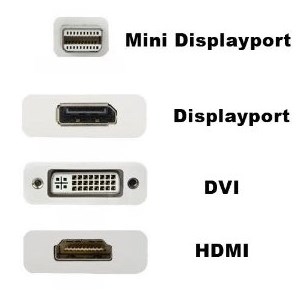SolutionOne Blog
Premium Cables: Wait, There’s a Difference?
 When you’re in an electronics store searching for the perfect cable for your new piece of hardware, you’re going to find yourself wondering what the difference is between the cheap cables, and premium cables. How can you determine whether or not you need premium cables?
When you’re in an electronics store searching for the perfect cable for your new piece of hardware, you’re going to find yourself wondering what the difference is between the cheap cables, and premium cables. How can you determine whether or not you need premium cables?
While some retailers will argue that premium cables are what you want for every part of your IT infrastructure, this is misleading. The answer isn’t as one-sided as you might expect. One reason why there seems to be some confusion regarding premium cables is due to the way cable quality used to affect signal quality in the days of analogue. These analogue cables provided picture quality which was heavily dependant on the thickness of their copper wiring.
Digital signals, on the other hand, aren’t nearly as picky. Though the strength of the signal still decreases with length, cord thickness no longer plays a part in the quality of the picture. Digital cables that take advantage of HDMI, DVI, DisplayPort, and Thunderbolt, are all capable of achieving the same digital signal over the same distance.

With a digital cable, the most important aspect isn’t the gauge or the thickness; instead, it’s the connection. As explained by Techquickie:
A crummy cable connector can result in a failure to display an image on the screen, but the difference is that a handshake process occurs to determine the quality of the link when you hook it up. And it either is good enough, or it isn’t. If it is, then it’s as good as any other suitable connection.
If you’re looking to take advantage of a new digital cable, your natural reaction is to think that premium will net you more bang for your buck. However, just because you’re paying more for it doesn’t mean that you’ll be getting a better connection. Instead of expecting great things from your premium cables, consider what the cable will be used for before purchasing it.
For instance, why shell out the extra cash when inexpensive cables get the job done just as well? This is especially helpful if you must accommodate for multiple workstations and have a limited budget. If the cable is to have stress placed on it, or if it’s expected to deal with movement of some sort, premium cables are a good idea. Cables with particularly strong connectors will be of great importance, simply because you must keep them from getting knocked loose.
Are premium cables worth it? The average PC user probably doesn’t need them; however, there is a reason that they exist, and there are situations where they’re more useful than the normal cables. If you’re ever unsure about whether you need premium cables for a situation, give us a call at (214) 299-8555. We’ll work with you to make sure you get the most for your money.
Comments